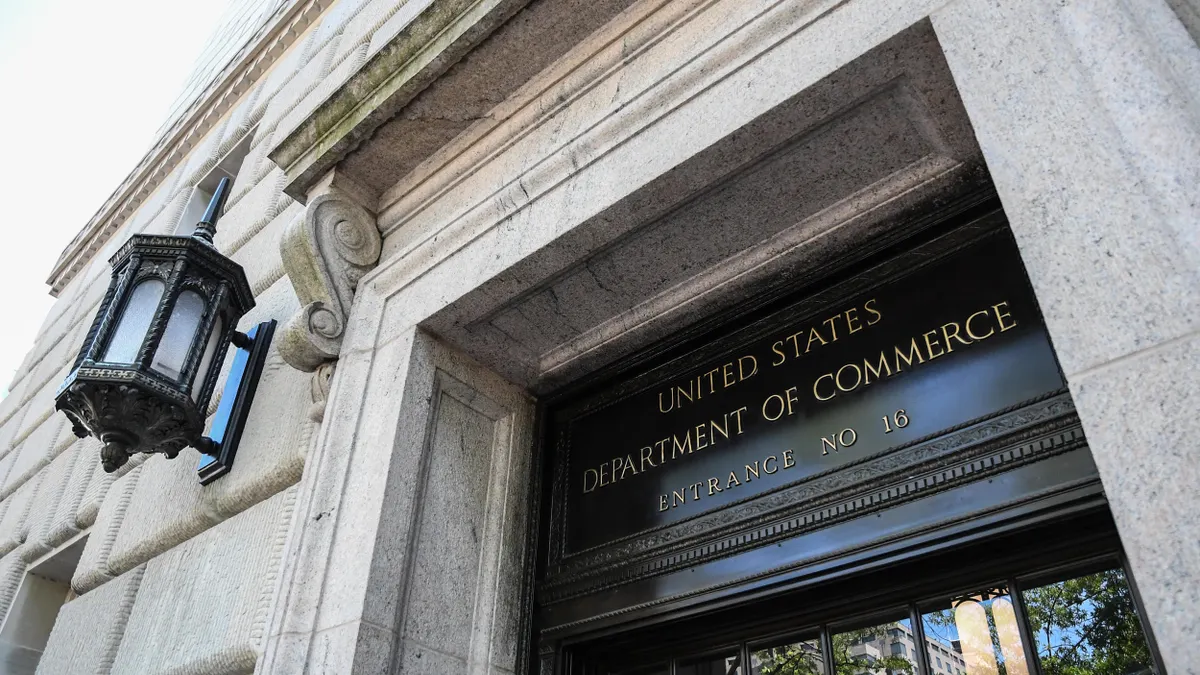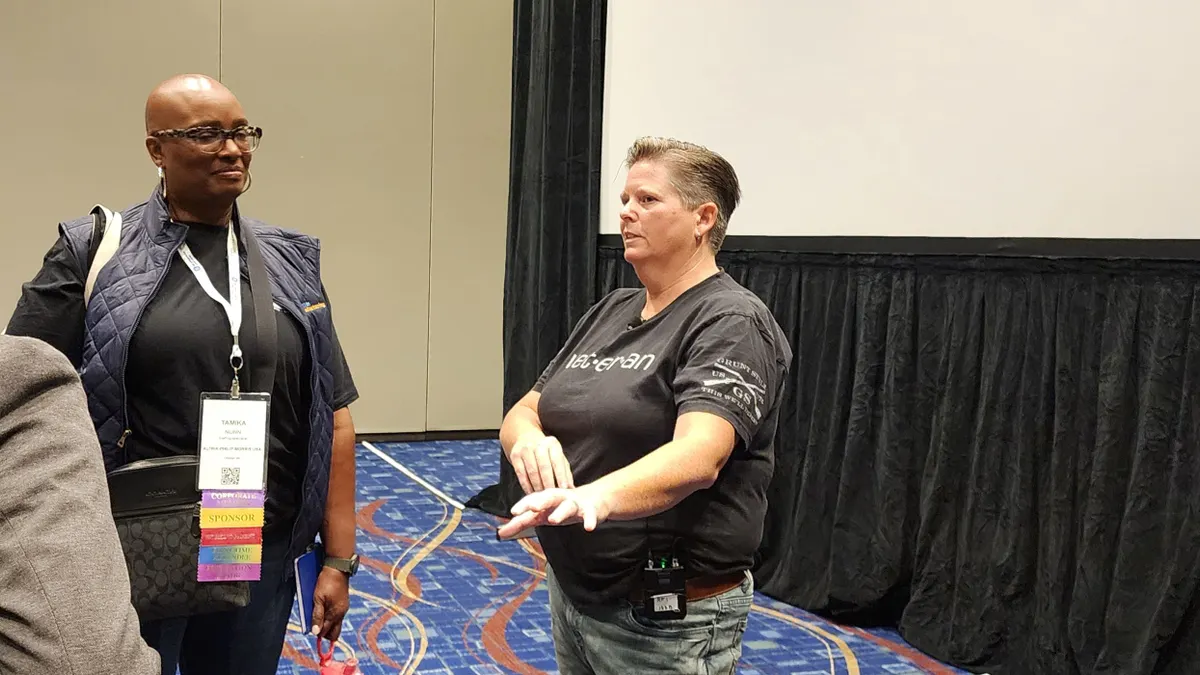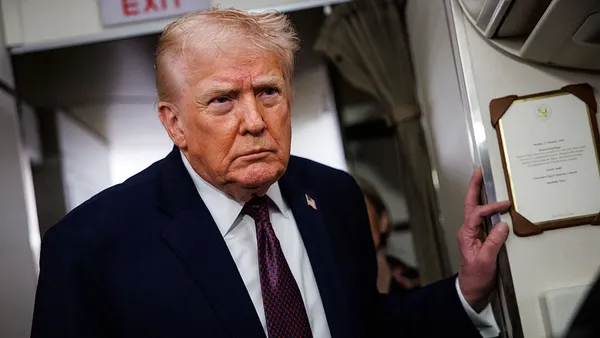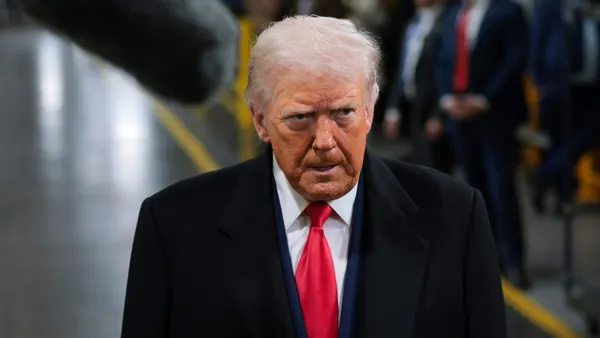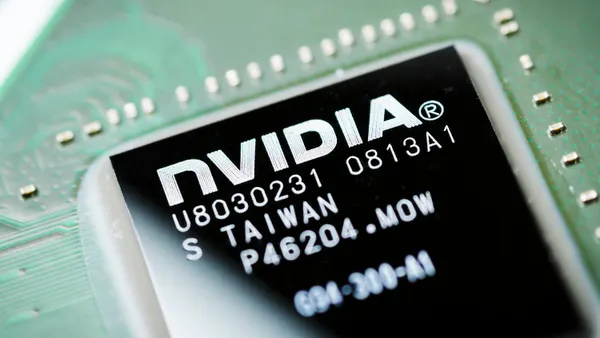Dive Brief:
- The Senate voted 51-47 on Tuesday to confirm multiple leaders to the U.S. Department of Commerce, the agency responsible for negotiating trade deals, promoting U.S. exports and enforcing tariffs on imports.
- David Fogel was appointed assistant secretary of commerce for global markets and director general of the United States and Foreign Commercial Service.
- Pierre Gentin was confirmed as the agency’s general counsel and David Peters was confirmed as assistant secretary of commerce for export enforcement.
Dive Insight:
The leaders whom the Senate confirmed this week will play a role in executing manufacturing- and trade-related programs and carrying out other priorities at Commerce under the leadership of Secretary Howard Lutnick.
Fogel’s role is responsible for directing programs that promote U.S. exports and domestic investment, and identifying trade barriers.
Fogel served during the first Trump administration, first as chief of staff at the Export-Import Bank for less than a year and a half, then as chief business development officer at the Department of State for five months. Following that, he taught at Georgetown University Law Center and was the CEO of a blockchain data center company.
This April, Fogel appeared before the Senate Committee on Banking, Housing and Urban Affairs and touted his prior work “helping U.S. companies compete with China and win deals abroad.”
The committee’s Republican leadership applauded his confirmation by the full Senate, pointing to Fogel’s international business experience and calling him an asset to the agency.
Meanwhile, Gentin will serve as a general counsel, a role providing legal and policy direction. Gentin comes to the cabinet from consulting firm McKinsey & Co., where he was chief legal officer. Previously, he was a partner at Cahill Gordon & Reindel and was a managing director at Credit Suisse.
Peters previously held multiple roles at the Department of Justice, most recently serving as a trial attorney in the agency’s Market Integrity and Major Frauds Unit. During a June confirmation hearing, Peters focused on export controls and other topics.
“If confirmed, it will be my charge to help ensure our most sensitive technologies do not end up in the world’s most dangerous hands,” he said.
As a whole, Commerce faces multiple key issues during the current presidential administration. Top priorities at the agency include export controls on chips for artificial intelligence and other efforts to crack down on tech companies based in China, along with subsidies for semiconductor manufacturing. The department also aims to facilitate foreign deals for U.S. manufacturers, particularly ones that boost manufacturing jobs in the U.S.
Lutnick has been a vocal proponent of tariffs as a way to balance trade and to incentivize U.S. manufacturing. “People who manufacture here, they don't pay a tariff. They don't pay a tariff at all,” he said during a recent interview on Face the Nation. Multiple manufacturers have reported cost hikes and reduced demand due to tariffs.
Lutnick has also advocated for more semiconductor manufacturing in the U.S. and for the U.S. to set global AI standards.


